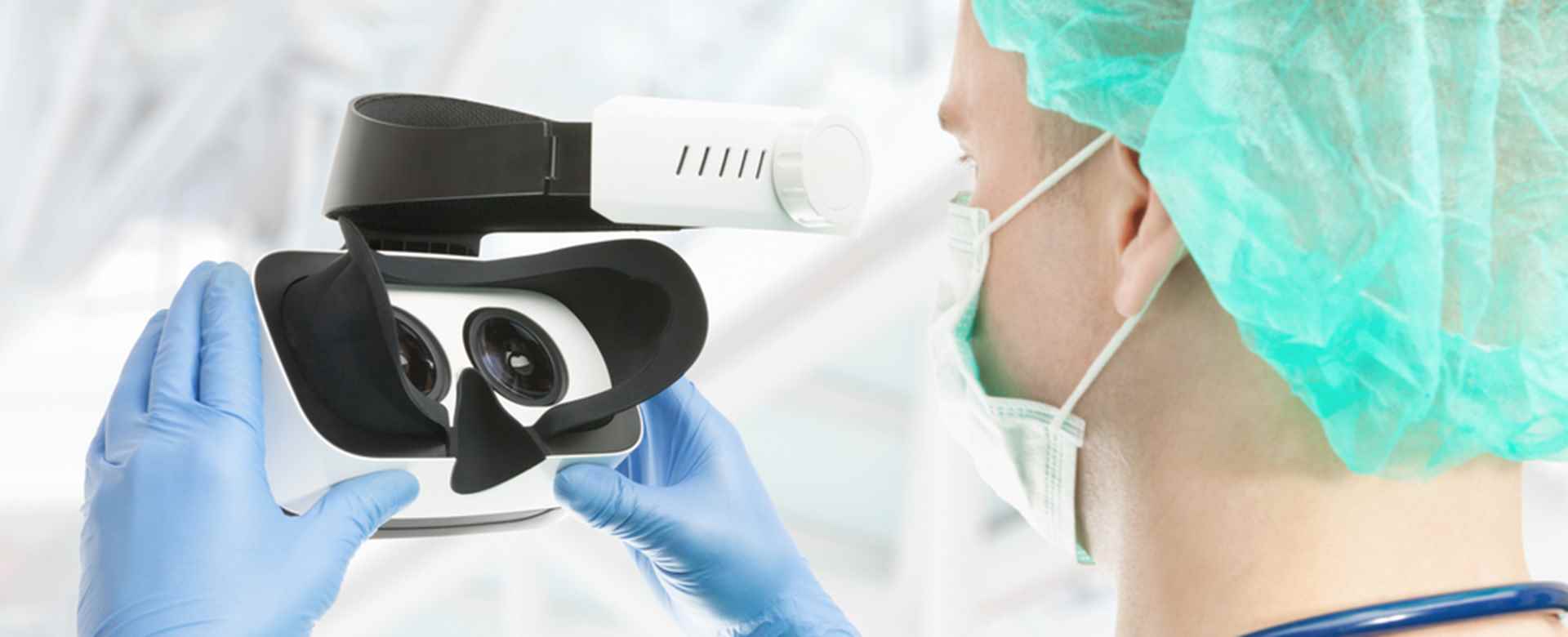What if medical students could practice procedures without being in an operating room? What if patients could be better protected from inexperience and rookie mistakes? In the past, students relied on lectures and textbooks to gain the knowledge they needed prior to heading into operating rooms. Students learned through real operations with more experienced surgeons overseeing their actions. Now, many have the opportunity to gain in-depth knowledge and experience through virtual reality (VR). By watching live procedures and going through detailed VR simulations, medical students have another tool to become skilled surgeons, reduce the risk of errors and provide higher quality medical care to their patients.
Medical Realities Broadcasts Procedure Around the World
In April 2016, Medical Realities live streamed an operation to remove a tumor from a patient’s colon. With a skilled surgical team, Dr. Shafi Ahmed, one of the co-founders of Medical Realities, performed the operation under the watchful eyes of almost 55,000 people across 142 countries, according to Med City News. Not only is such an operation interesting to watch, but it can be highly informative for medical students across the world training to become surgeons. Viewers could watch the procedure from 360 degrees, allowing them to witness an experienced surgeon’s technique and back up their theoretical learning with a real-world example.
Royal College of Surgeons in Ireland Develops First VR Medical Training Simulator
Medical Realities is not the only institution driving forward VR technology within the medical field. In May 2016, the Royal College of Surgeons in Ireland (RCSI), in partnership with Immersive Education VR, became the first to develop a fully interactive VR medical training simulator that is available to the public to download. RCSI’s app puts medical students in the role of an emergency department trauma team leader. Students must assess patients, make real-time decisions and perform necessary interventions and surgical operations. Like Medical Realities’ live streamed operations, VR medical training simulators can be used by students to gain confidence performing surgeries and view operations or situations they are not able to participate in during their OR time or other training hours.
Studies Show VR Medical Training May Save Lives
The benefits of VR training for prospective students are more than theoretical. Two separate studies published in The Annals of Thoracic Surgery in August reported simulation training for surgery residents built confidence and could have a significant, real-world impact on cardiac surgery patients, according to a press release from The Society of Thoracic Surgeons.
For one of the studies, eight major cardiothoracic surgery residency programs formed the Cardiac Surgery Simulation Consortium. This group developed a curriculum based on 39 sessions that included simulation training modules for three common cardiac procedures: aortic valve replacement, cardiopulmonary bypass and coronary artery bypass grafting. The second half of the curriculum concentrated on handling adverse events during the procedures. After 110 hours of simulation training for each resident, the researchers found that every resident improved in all surgical skills evaluated.
Simulation training was found to be beneficial in many ways, as it:
- Emphasized repetition, which directly related to improved skills
- Enabled residents to repeat procedures until mistakes were corrected
- Provided a slower-paced learning environment than a traditional OR
- Removed barriers and obstacles to learning found in the OR
- Allowed for practice that did not affect patients
- Allowed for additional supervision and coaching
- Improved the relationship between residents and supervising physicians
Practice makes perfect is particularly true for surgical residents. VR medical training enables residents to gain the practice they need to develop crucial skills and confidence before they step foot in an OR. Additionally, specifically practicing how to handle common adverse effects gives residents tools to stay calm and provide excellent care in the OR.
“Simulation-based training in adverse events could well prove life-saving,” said Dr. Richard H. Feins, from the University of North Carolina at Chapel Hill. “This training has the ability to decrease the number of adverse outcomes that occur and to minimize the ramifications of those events. This should result in better outcomes for patients, as well as lower costs and improved efficiency.”
At Advanced Medical Reviews (AMR), an independent review organization, technological innovation is also a top priority. AMR focuses on keeping its state-of-the-art client portal technology flexible, intuitive and up to date with current guidelines and regulations. Understanding the quick pace at which healthcare is evolving is key to appreciating the benefits of VR medical training. AMR looks forward to seeing how VR or any other technological advancements in healthcare will improve patient care.
Sign up for Updates:
Privacy Details
By submitting this form, you are consenting to receive marketing emails from: Advanced Medical Reviews, LLC. You can revoke your consent to receive emails at any time by using the Unsubscribe link, found at the bottom of every email.
